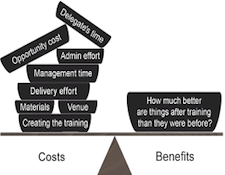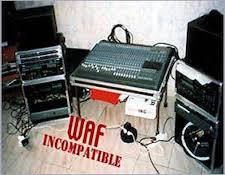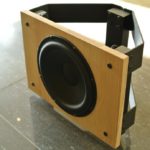It’s the time of year for saving money!
Audiophiles. What a fickle bunch we are. I tend to believe we take as much pleasure from the frequency of our disagreements on any number of subjects as we do the system itself. We disagree on the veracity of amplifier designs, digital vs. analog, speakers, cables and virtually any audiophile subject of worthwhile note. All that is perfectly understandable and frankly, very much an accepted condition. Put twenty people in a room and there will be disagreement about almost any subject that might be discussed. We’re human, we’re individualistic, it’s what we do.
 Disagreements may exist on how best to assemble an audio system. However, there is little disagreement in the fact that a system is almost completely and ultimately based on cost. We audiophiles look at cost in a wide variety of factors. Our justifications for spending anything are perhaps as varied as the twenty people in a room who find it nearly impossible to have any measure of collective agreement.
Disagreements may exist on how best to assemble an audio system. However, there is little disagreement in the fact that a system is almost completely and ultimately based on cost. We audiophiles look at cost in a wide variety of factors. Our justifications for spending anything are perhaps as varied as the twenty people in a room who find it nearly impossible to have any measure of collective agreement.
To begin with, and in a global sense, I see the cost justification of a high performance audio system difficult to fully understand, particularly to those outside our hobby. “Just to play a song?” is a typical response from non-audiophiles when they find out how much might be spent on a system. Ask a non-audiophile why they like a song and the reply might be “I don’t know, I just liked it, or maybe, “it had a good beat.” Ask an audiophile why they liked a song and one might spend the next ten minutes in a discussion about dynamics, imaging, clarity, tonality, frequency response, transient response, and any number of audiophile metrics. It seems obvious this focused musical appreciation sets audiophiles apart.
 It should be understood that different systems produce different levels of sonic integrity. In the same way that a sub-compact will not perform to the equivalency of a world class sports car, an iPod won’t perform like a high performance reference system. I’d say we have an equally hard time making non audiophiles understand why we do what we do as someone who has a Ferrari does to a person driving an inexpensive sub compact. It’s universally understood that sonic excellence comes with a cost.
It should be understood that different systems produce different levels of sonic integrity. In the same way that a sub-compact will not perform to the equivalency of a world class sports car, an iPod won’t perform like a high performance reference system. I’d say we have an equally hard time making non audiophiles understand why we do what we do as someone who has a Ferrari does to a person driving an inexpensive sub compact. It’s universally understood that sonic excellence comes with a cost.
Regardless of our level of investment, how we invest in an audio system is highly debatable and may be examined in many different ways. One question we frequently ask ourselves is if we spend “X” on the new whatever, will the level of sonic improvement be commensurate with the purchase cost?
 Personally, I stopped asking myself that particular question years ago. I see the answer as impossibly difficult to answer. I choose instead to ask myself several questions. One, do I like the sonics the new thing produces? Is this a sound with which I can live? Two, can I afford it? Affordability is based on multiple factors, like pending financial obligations, will the purchase cause me undue financial hardship and will I miss the money? If I can justify those things, I have a clear path to pull the trigger. Consequently, at that point, I really don’t care how much the thing costs. That, however, is my “modus operandi” and is certainly not how everyone does things. Because how we spend our money is just as much a personal thing as the music we like and whether we prefer digital or analog.
Personally, I stopped asking myself that particular question years ago. I see the answer as impossibly difficult to answer. I choose instead to ask myself several questions. One, do I like the sonics the new thing produces? Is this a sound with which I can live? Two, can I afford it? Affordability is based on multiple factors, like pending financial obligations, will the purchase cause me undue financial hardship and will I miss the money? If I can justify those things, I have a clear path to pull the trigger. Consequently, at that point, I really don’t care how much the thing costs. That, however, is my “modus operandi” and is certainly not how everyone does things. Because how we spend our money is just as much a personal thing as the music we like and whether we prefer digital or analog.
Another part of our justification system is whether or not buying new or used equipment is practiced. Here again, this is a highly debatable subject. There are those who have successfully assembled a remarkable system through the exclusive use of used gear. There are those, like me, who have a system comprised of nothing but components purchased brand new, not something used from an unknown seller on the Internet. Here again, my way of doing things may not be viewed as exclusively the optimal practice. I understand that and frankly, that’s okay. We all have our own methodology of cost justification. Just because I find buying used gear I don’t personally know from a stranger ill advised, it does not guarantee that doing so will end in disaster. Because in actual practice, I prefer to think most audiophiles are honest. For me, it’s really as simple as I don’t like buying used things – stereos, cars or much of anything else.
 How much we spend on our systems is conditional on a host of outside influences. For many of us, the overwhelming, driving force behind how much we spend on a system is a significant other. “Wife Acceptance Factor” is very real and don’t for one nanosecond discount the influence a spouse has when it comes to justifying the expenditure of thousands of dollars on “something to play a song.” If “WAF” is ultimately conditional on the specific level of investment of an audio system, grin and bear it, because there’s probably little that can be done about it, at least not easily.
How much we spend on our systems is conditional on a host of outside influences. For many of us, the overwhelming, driving force behind how much we spend on a system is a significant other. “Wife Acceptance Factor” is very real and don’t for one nanosecond discount the influence a spouse has when it comes to justifying the expenditure of thousands of dollars on “something to play a song.” If “WAF” is ultimately conditional on the specific level of investment of an audio system, grin and bear it, because there’s probably little that can be done about it, at least not easily.
At the end of the day, an audio system is a very individual collections of parts. We don’t have to understand the science behind why anything works. If we choose to believe something that purportedly operates on the quantum level and is possessed of all manner of advanced mathematics, then so be it. We don’t really have to justify our belief structures to anyone. Manifestly, we have to be comfortable with our own decisions and how those decisions, in specific regard to an audio system, captivates us, moves us and imbues us with an emotional connection to the music our systems produce. How much or how little we spend might be governed by many factors and outside influences. However, when we play a song, if we enjoy what we hear, all those other factors are forgotten and becomes money well spent. At that point justifications, ultimately, no longer matter.








